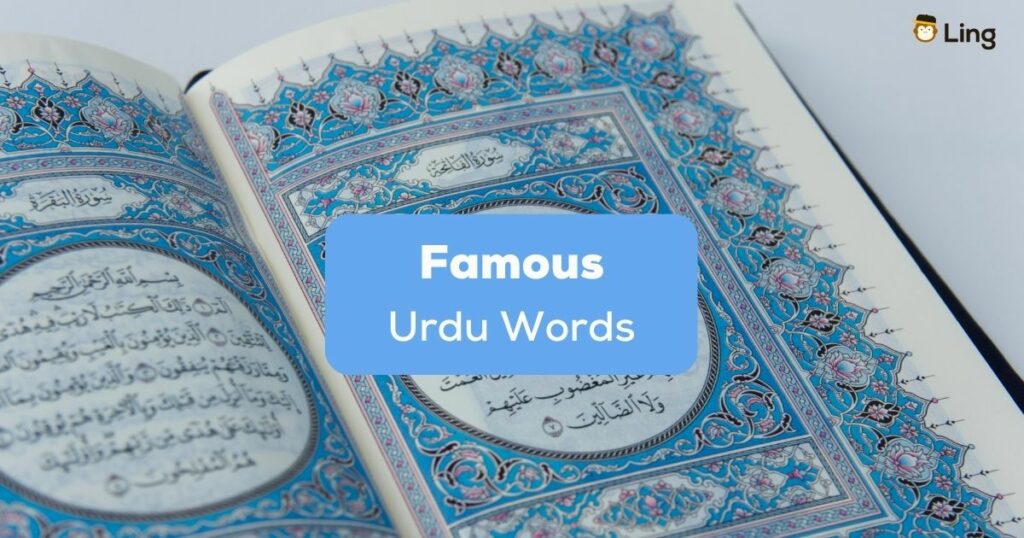My interest in learning the Urdu language started in my early teens. Back then, I would spend my Sunday afternoons with my father, listening to ghazals of Ghalib, Faiz Ahmed Faiz, and Mir Taki Mir, sung mellifluously by famous singers from India and Pakistan. It was through these ghazals (غَزَل or poetry) that I discovered the beauty of the famous Urdu words and their power to convey deep emotions and philosophical ideas.
In my opinion, Urdu should be declared the official language of poetry. Its poets’ intricate and melodious words can soothe a broken heart and provide solace to the soul in times of distress. In this article, we will explore some of the most famous verses (she’r – شِعْر) and their meanings. If you’re ready to learn more, join us as we delve into the philosophies of love and life woven into the fabric of Urdu poetry and explore how the language and its poets have the power to heal, inspire, and uplift the soul in this post!
Uniqueness Of Urdu
The Urdu language is deeply rooted in the Indian subcontinent and has a rich literature and cultural history. Its vocabulary draws upon Arabic, Persian, and Sanskrit, resulting in a lyrical and nuanced language. The language has always been closely associated with poetry, and the poetic form of ghazal has been an integral part of Urdu literature since the Mughal era.
A ghazal is a form of poem that originated in Arabic and Persian literature and is characterized by its couplets (she’r) that are self-contained and express a single thought or emotion. In Urdu, ghazals are often used to express the complexities of love, the many facets of human emotion, the fleeting nature of life, and the search for meaning and purpose. It is said that the beauty of Urdu lies not only in its words but also in its ability to convey deep emotions and philosophical ideas.
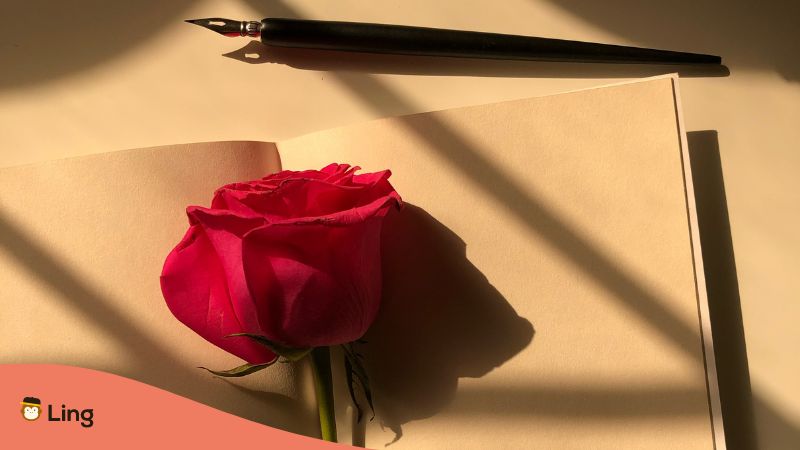
Famous Urdu Words
Before we go deeper into the common lines used in Urdu poetry, here are some basic words you need to master first.
| English | Urdu | Roman Transcription |
|---|---|---|
| Zero | صفر | Sifar |
| Well (expression, for ex: ‘Oh, well’) | خير | Khair |
| Luminosity | نور | Noor |
| Time | وقت | Waqt |
| Period/ season | زمانا | Zamānā |
| Desire/ longing | اَرْمان | Armān |
| Respite/ relief | راحَت | Rāhat |
| Sigh (expression of sorrow, pain, grief) | آہ | Aah |
| Direction | جانِب | Jānib |
| Destination | مَنزِل | Manzil |
| Consent/ approval | رَضا | Razā |
| Patient | بیمار | Bīmār |
Famous Urdu Couplets
The best way to truly understand how the poetic Urdu words shared above make sense is by taking a look at the famous couplets in Urdu poetry. Let’s review the 10 best ones you need to master today!
Couplet #1
Ham ko ma.alūm hai jannat kī haqīqat lekin, dil ke ḳhush rakhne ko ‘ġhālib’ ye ḳhayāl achchhā hai.
Translation: We know the reality/truth of Paradise, but to keep the heart distracted, Ghalib, this thought is good.
This is the couplet that pops up in one’s mind as soon as one hears the name Ghalib. Mirza Ghalib, the 18th-century Indian poet to this date, remains the unparalleled Shaah (king) of Urdu writing. The poetic word for Paradise used here is ‘jannat‘ while that for reality/truth is ‘haqīqat.’
Couplet #2
Hazāroñ ḳhvāhisheñ aisī ki har ḳhvāhish pe dam nikle, bahut nikle mire armān lekin phir bhī kam nikle.
Translation: Thousands of desires, each worth dying for. Many of them I have realized, yet I yearn for more.
Another gem by Mirza Ghalib, these beautiful Urdu words talk about the endless desires of a human being which only end when the body dies. The poetic Urdu word for desire is ḳhvāhish which is also used in the plural form in this verse.
Couplet #3
Aur bhī dukh haiñ zamāne meñ mohabbat ke sivā , rāhateñ aur bhī haiñ vasl kī rāhat ke sivā.
Translation: There are other sorrows apart from love, just as there are other reliefs apart from the relief of togetherness.
This couplet by Faiz Ahmad Faiz is a marked departure from the usual poems written about love, separation, and the pangs of unfulfilled love. The poetic Urdu word ‘vasl‘ means togetherness, while the word for love is ‘mohabbat.’
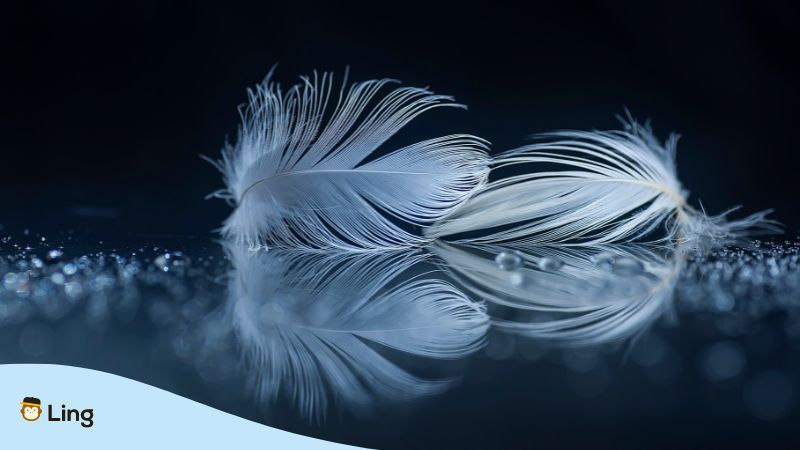
Couplet #4
Ham aah bhī karte haiñ to ho jaate haiñ badnām, vo qatl bhī karte haiñ to charchā nahīñ hotā.
Translation: I incur infamy even for releasing a sigh while they get away with committing murder.
Spoken by Akbar Allahabadi, this couplet digs at a beloved for being cruel-hearted. The poetic Urdu word for murder is ‘qatl,’ which has an Arabic origin.
Couplet #5
Maiñ akelā hī chalā thā jānib-e-manzil magar, log saath aate ga.e aur kārvāñ bantā gayā.
Translation: I started alone in the direction of my destination. People started joining me, and a horde started taking shape.
In this couplet, poet Majrooh Sultanpuri uses the poetic Urdu word kārvāñ to denote a ‘group of travelers.’
Couplet #6
ḳhudī ko kar buland itnā ki har taqdīr se pahle, ḳhudā bande se ḳhud pūchhe batā terī razā kyā hai.
Translation: Take yourself to such great heights that before writing your destiny, even God asks for your consent.
These beautiful Urdu words by Allama Iqbal are the epitome of self-motivation. The poetic Urdu word for God is ḳhudā, while the Arabic word taqdīr means destiny or fate.
Couplet #7
Un ke dekhe se jo aa jaatī hai muñh par raunaq, vo samajhte haiñ ki bīmār kā haal achchhā hai.
Translation: One glance from them (beloved) brings a glow to (my) face, but that makes them think I am recovering well from my illness.
Only Ghalib could sketch such an earnest portrait of a lovelorn person through his words. The poetic Urdu word for glow is raunaq.
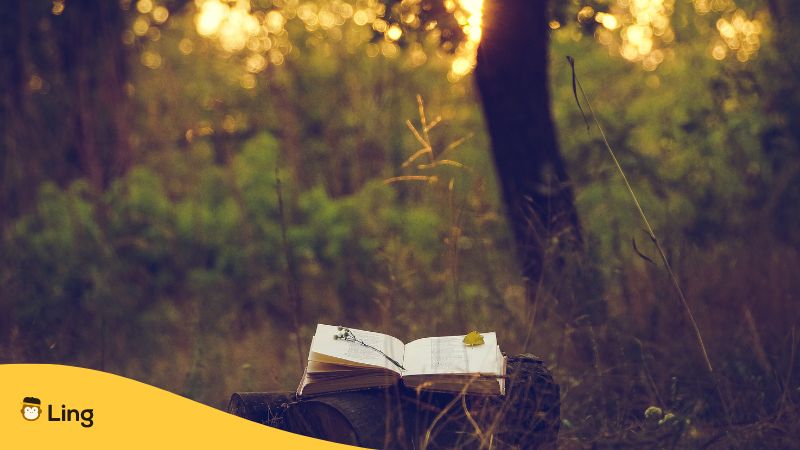
Couplet #8
Ye ishq nahīñ āsāñ itnā hī samajh liije, ik aag kā dariyā hai aur Duub ke jaanā hai.
Translation: (You) would do well to understand that ‘love’ is not easy; it is but a sea of fire that must be crossed only by drowning in it.
This is one of the most familiar couplets of Urdu being used in pop culture. Poet Jigar Moradabadi wraps up the many vagaries of love with a comment on its fiery nature. The poetic Urdu word for sea is dariyā with Persian origin.
Couplet #9
Kabhī kisī ko mukammal jahāñ nahīñ miltā, kahīñ zamīn kahīñ āsmāñ nahīñ miltā.
Translation: One doesn’t get everything (the entire world); Sometimes, they miss out on possessing the land, and other times they lose out on grabbing the sky.
This is my favorite Urdu she’r written by Nida Fazli. Here, the poetic Urdu word ‘mukammal‘ means complete.
Couplet #10
Ragoñ meñ dauḌte phirne ke ham nahīñ qaa.il, jab aañkh hī se na Tapkā to phir lahū kyā hai.
Translation: (I am) not impressed by the blood simply flowing in the veins (merely existing). If not shed from the eye, what is the use of that blood?
This line speaks of what it is to live yet not feel actually alive. In this couplet, the poetic Urdu word lahū means blood.
We Got You Intrigued?
Learning Urdu is an exciting and enriching experience, and there are many ways to get started. If you’re eager to practice your speaking skills, try holding simple conversations with Urdu speakers or speaking Urdu aloud in front of a mirror. You can also immerse yourself in the language by listening to Urdu songs, watching Urdu dramas, and reading Urdu books and literature.
However, if you want to take your Urdu language skills to the next level and truly master the language, then it’s time to check out the Ling app!
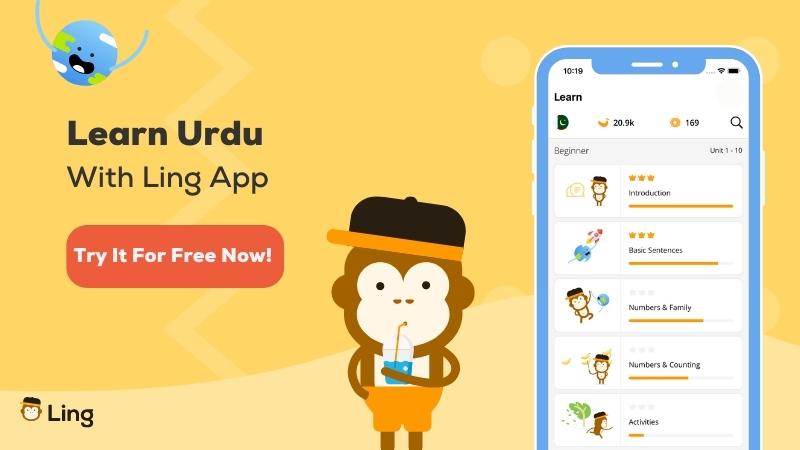
Have Fun Learning Urdu With Ling!
Are you ready to embark on a journey to learn Urdu? Look no further than the Ling app! With its innovative linguistic techniques and cutting-edge technology, the Ling app offers a comprehensive language-learning experience designed to help you succeed in mastering Urdu and over 60 other languages.
Whether you’re a beginner or an advanced learner, the Ling app’s gamified interface, interactive exercises, and fun quizzes make learning a language an enjoyable and rewarding experience. With in-depth lessons and real-time feedback, you can progress at your own pace and master the language quickly.
And the best part? The Ling app is completely free to download from the Google Play Store or Apple App Store. So, what are you waiting for? Start your language-learning journey today and discover the beauty and richness of Urdu with the Ling app.
